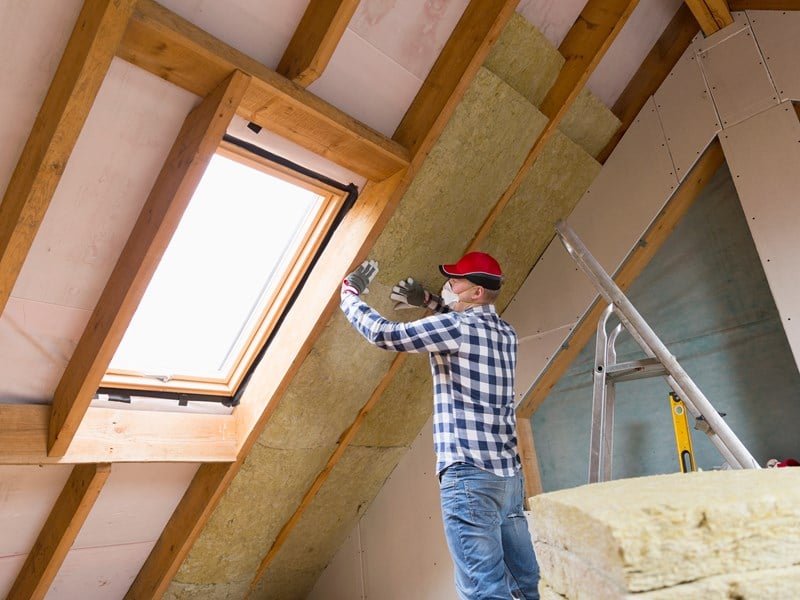- Home /
- News /
- Infrastructure
Two for one energy bill debate
22 May 2025

Parliament has debated two energy bills aimed at ensuring community confidence in the energy transition and supporting electrification as part of the state’s transition to net zero emissions by 2045.
The bills were considered in a ‘cognate debate’, whereby two separate but related pieces of legislation are debated together.
The Energy and Land Legislation Amendment (Energy Safety) Bill 2025 and the Victorian Energy Efficiency Target Amendment (Energy Upgrades for the Future) Bill 2025 both passed without amendment.
In her second reading speech on the first bill, Minister for Energy and Resources Lily D’Ambrosio said the laws would modernise Victoria’s energy safety laws for a cleaner, more distributed energy future and enhance public safety, regulatory agility and investment certainty.
‘Victoria’s energy safety framework was designed for a centralised, fossil-fuel based network, and has not kept pace with these evolving technologies, creating regulatory gaps,’ she said.
The bill would create a new energy safety regulatory environment including new entry powers with warrants to address non-emergency safety risks, increased penalties for non-compliance, allow officers to act without prior written consent, expand powers to suspend licences and issue prohibition or improvement notices.
“ ‘Victoria’s energy safety framework was designed for a centralised, fossil-fuel based network, and has not kept pace with these evolving technologies.' ”
Lily D'Ambrosio, Minister for Energy and Resources
Western Metropolitain MP Ingrid Stitt said in her second reading speech in the Legislative Council that the second bill aimed to strengthen and extend the Victorian Energy Upgrades (VEU) program, ensuring it remained effective in lowering emissions, reducing energy bills, and supporting electrification as part of the state’s transition to net zero emissions by 2045.
“ ‘I say even where a scheme has good intentions, it can be poorly designed and poorly delivered, and this is such a scheme.’ ”
David Davis, Southern Metropolitan MP
It extends the program’s legislated end date, enables support for electrification and mandated energy efficiency standards and ensures continued financial incentives for consumers, particularly low-income and vulnerable groups.
She said more than 2.5 million households and businesses have participated in the program since 2009, saving 88.1 million tonnes of greenhouse gas emissions and $110 per household, as well as avoiding $3.8 billion in energy system costs.
‘Supporting energy efficiency is at the heart of this approach, saving energy consumers money, making them more comfortable in their homes and businesses and reducing emissions from the energy sector,’ she said.
Southern Metropolitan MP David Davis said the bill represented ‘a little bit of an overreach’.
‘These are big surges in penalties – massive surges in penalties. I am not sure whether this is going to make the difference that the government imagines,’ he said.
On the second bill he said that while ‘the Liberals and Nationals support the concept of energy efficiency’ the scheme itself is flawed.
‘I say even where a scheme has good intentions, it can be poorly designed and poorly delivered, and this is such a scheme,’ he said.
Anasina Gray-Barberio, Member for Northern Metropolitan said the Greens would be supporting the bill.
‘It has never been more urgent to transition Victorian homes and businesses off fossil gas and expensive, polluting and dangerous fossil fuel and onto cheap, clean renewable power. Victoria consumes more gas than any other Australian state or territory,’ she said.
Northern Metropolitan MP Sheena Watt said the bills complemented each other.
‘These two bills are complementary, addressing both sides of the energy transition equation. One drives the uptake of energy efficiency technologies that cut emissions and lower costs, the other ensures that our energy system evolves and the safety and reliability Victorians rely upon is maintained and together they are essential for delivering an affordable, safe and zero-emission energy future,’ she said.
Member for Eastern Victoria Melina Bath also questioned how well the VEU program had been administered.
'Again, the idea about improving prices and improving efficiency is a noble one, but what have we seen under the government in recent years? We have seen energy prices rise, rise, rise – not go down, down, down but go up, up, up,' she said.
The full debate is available to read in Hansard.